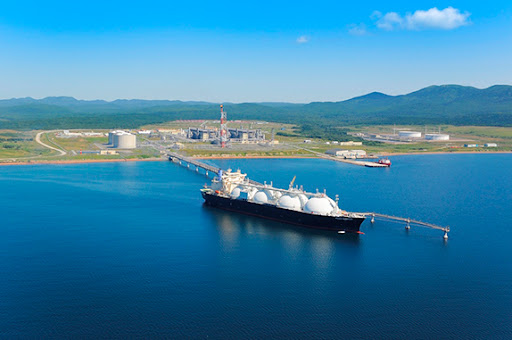Russia's Control of Sakhalin Project Could Pose Upside Risk to LNG Prices
(Reuters) — Russia announced on Friday a decree that seizes full control of the Sakhalin-2 gas and oil project in the country's far east, a move that could force out Shell and Japanese investors and adds another bullish factor to prices in a tight global LNG market.
The order, signed on Thursday, creates a new firm to take over all rights and obligations of Sakhalin Energy Investment Co., in which Shell and two Japanese trading companies Mitsui and Mitsubishi hold just under 50%.
Japanese Prime Minister Fumio Kishida said on Friday that Russia's decision would not immediately stop LNG imports from the development. The same message was echoed by the Kremlin that Russia sees no grounds for LNG supplies to stop.
Market Reaction
A prompt impact is yet to be seen in the global LNG market, already tightening further due to reduction of Russian supplies to Europe, curtailed U.S. supply due to a key plant outage and rising demand in Asia. However, the move poses an upward price risk, especially for Japanese buyers.
The average LNG price for August delivery into northeast Asia LNG-AS was estimated by Reuters at $39 per million British thermal units (MMBtu), up $2 or 5.4% from the previous week.
LNG prices have recently jumped some 60% and are seen exceeding $40 per million British thermal units (MMBtu) soon. If the global backdrop tightens further, benchmark values will be within reach of record levels near $60 seen earlier this year.
Here is a summary of analyst comments:
Robert Songer, LNG Analyst at Data Intelligence Firm ICIS:
"Japan is expected to be the biggest loser from being kicked out of Sakhalin, Sakhalin 2 exports for the first six months of 2022 stood at 5.81 million tonnes (mt). Of this Japan's share was 3.45 mt, followed by South Korea at 1.15 mt and China at 0.84 mt."
Kaushal Ramesh, Senior LNG and Gas Analyst at Rystad Energy:
"Admission to the new company will require the current joint venturers to agree to Russia’s conditions, which is unclear and could — evidently — be subject to change. If one of the current joint venturers is not admitted to the new company, their stake will be sold off and held in a special account, from which Russia will deduct damages. The basis of this deduction is also unclear."
"In the near term, chances are they will continue to supply to long-term contracts. However the absence of any international partners with LNG experience also poses downside risk to their production, especially if they run into an unplanned outage or maintenance, after which sanctions could complicate the import of technology to conduct repairs."
"Rystad sees long-term downside risk for the entirety of current Russian production including Sakhalin-2 and Yamal — which is around 30 million tonnes — circa 7% of global production. The magnitude is so large that the recent sanctions of Plaquemines and Corpus Christi Stage 3 have only balanced this out to 2030.
"Considering the current outlook for LNG demand and production, we still see a > 100 Mtpa supply gap in 2030. However if Russian production drops to zero, this could add another ~30 Mtpa of deficit. This is a very bullish environment for LNG given Europe’s demand as they pivot away from Russian gas."
Tamir Druz, Managing Director at Consultancy Capra Energy:
"This heightened political risk may help to maintain and maybe increase the risk premium within the LNG price curve."
"The recent action vis-a-vis Sakhalin 2 raises questions regarding Moscow's intentions toward the much larger 17.4 million tonnes per annum (MTPA) Yamal project, as well as the massive pipeline of new Russian projects, exceeding 30 MTPA. Collectively, this is creating an air of uncertainty around almost 60 MTPA of existing and planned (post-FID) capacity.
"These projects will be harder to develop, maintain and operate without foreign partners' involvement and active support, which is being undermined by the takeover of SEIC."
Related News
Related News

- Keystone Oil Pipeline Resumes Operations After Temporary Shutdown
- Freeport LNG Plant Runs Near Zero Consumption for Fifth Day
- Biden Administration Buys Oil for Emergency Reserve Above Target Price
- Mexico Seizes Air Liquide's Hydrogen Plant at Pemex Refinery
- Enbridge to Invest $500 Million in Pipeline Assets, Including Expansion of 850-Mile Gray Oak Pipeline





Comments